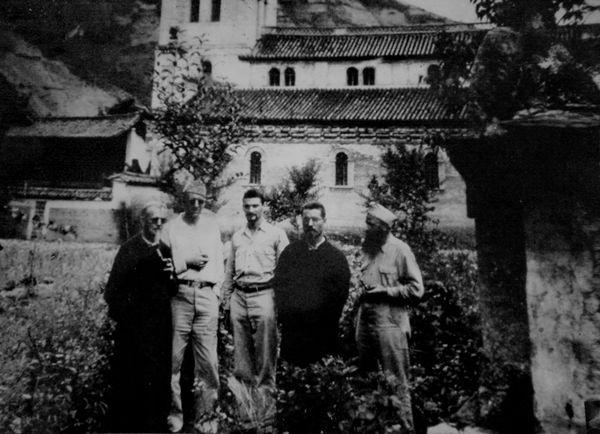Catholic Church in a Tibetan village
- By Lu Rucai
 0 Comment(s)
0 Comment(s) Print
Print E-mail China Today, February 6, 2017
E-mail China Today, February 6, 2017
New Priest in the Village
At 9:00 am every Sunday, the Catholics of Cizhong come to church. Older women, their grandchildren in tow, wear traditional Tibetan dress. Like many other places in China, the younger villagers have gone to cities to be migrant workers, leaving their children and aged parents behind.
In 2008, the situation where Cizhong church had no resident priest changed. Yao Fei from Inner Mongolia now fulfills this function. Before coming here he worked for years in churches in South China’s Hubei and Fujian provinces. To him, not speaking the Tibetan language is the main difficulty. "In the early days, the French and Swiss priests could all preach in Tibetan, which helped them win the trust of the congregation," Yao Fei said. "Although they can understand my Chinese preaching, they prefer it in the Tibetan language." In his spare time, he studies Tibetan and local customs in the Tibetan-inhabited region. He is always invited to wedding ceremonies, funerals, and birthday parties. "Whether you are a Buddhist or a Catholic, many things connect. Here, villagers of different religions get along pretty well with each other," Yao Fei said.
|
|
|
A historical photo: a few American soldiers at the Cizhong Church during the Chinese People’s War of Resistance against Japanese Aggression.Dixuan Uncredited photos by Yu Xiangjun |
It was a Sunday morning. As the church filled, a line formed outside the confessional. Rays of sunlight splintering through the arched windows illuminated the murals, painted more than 100 years ago on the church walls. Though Western culture leaves its traces on the church exterior and interior, many decorations within have distinct Chinese features. There are on its walls, for example, many pictures in the Tibetan and Bai styles. Yao Fei said that when he first came here, he taught villagers nothing more than the fundamental Catholic tenets. But he discovered that people here also sought guidance in other problems, such as marital and neighborhood relations. When listening to confessions, therefore, he offered suggestions, based on the Catholic doctrines, on how to be tolerant of others. On this particular day, apart from the normal mass, he also baptized a village newborn.
After mass, Wu Gongdi waited for Yao to finish his ministrations because he had asked him to hold a family mass in his newly refurbished house. "It’s been a long time since I held a family mass," Wu said. When his first and second sons were born, religious activities were forbidden in China, so he had to hold clandestine midnight baptisms. These days, religious activities are a part of local village life.
Different from Catholic churches in other places, the mass in Cizhong Church is held on Monday, Wednesday, Friday evenings and Sunday mornings. But the church is open daily to villagers and visitors. In 2006, Cizhong Church was approved as a Major Historical and Cultural Site Protected at National Level. It has since drawn visitors from around the world, including France.
This international influx has benefited Tsering Quzong’s family inns, which are in growing demand. After seeing the Cizhong church, visitors often go to her house to look at the venerable and characteristic Tibetan handicrafts and other artifacts there and observe traditional Tibetan lifestyle. Tsering Quzong found a franc minted in 1913 which had been broken in half, so signifying her great grandfather’s interaction with French missionaries. She had another intact franc which her brother had taken to Shanghai to be appraised. "We will never sell it, we just want to know its history," she said.
Life in this village near the Nujiang River follows its daily course, as the mani stone piles on the village outskirts and the Catholic Church at its center continue their silent dialogue. In the church graveyard, large trees shade the graves of Wu Xuzhong and the Swiss missionary.
Wu Gongdi said that a new priest, freshly graduated from a missionary school who knows the Tibetan language, would be coming to Cizhong Church. This new arrival will help the local Catholics to sustain their faith.






